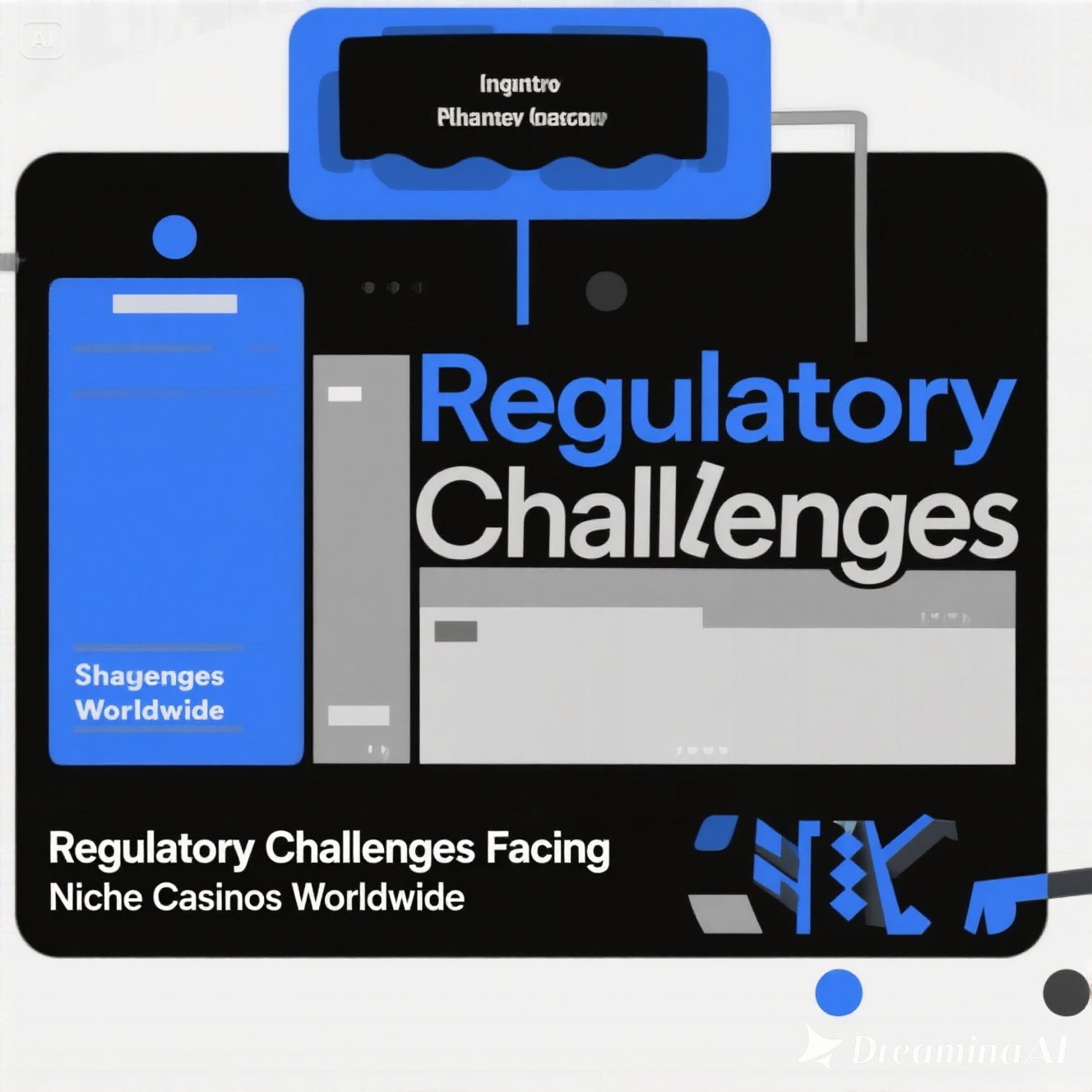
Explore the key regulatory challenges facing niche casinos worldwide in 2025 — from AML/KYC, licensing complexity, and enforcement to Web3 uncertainties and responsible-gambling rules.
Niche casinos — small land-based venues, boutique online operators, tribal casinos, and emerging Web3/crypto gambling platforms — face an increasingly complex regulatory landscape. As governments and financial authorities tighten rules on anti-money-laundering (AML), licensing, consumer protection, and advertising, smaller and novel operators struggle to comply while staying commercially viable. Below are the main regulatory challenges shaping the sector today and what niche operators must navigate to survive and scale.
1. Harder AML / KYC requirements
Regulators worldwide are expanding AML and KYC obligations for gambling operators, closing previous gaps between traditional banks and gaming businesses. Niche casinos often lack large compliance teams and sophisticated transaction-monitoring systems, making it difficult to meet demands for ongoing customer due diligence, real-time monitoring, and suspicious activity reporting. Recent regulatory reforms in multiple jurisdictions (including updates aligned with FATF and EU rules) make these obligations more stringent and broader in scope. DiliSense+1
2. Enforcement and rising penalties
Big enforcement actions in recent years demonstrate that regulators will prosecute failures aggressively — and fines can be crippling. High-profile cases against major operators over AML weaknesses and client screening show that even experienced firms can be found non-compliant, signalling greater risk for smaller niche venues with fewer resources for compliance remediation. These actions also drive closer regulatory scrutiny of third-party suppliers and payment processors used by niche operators. Financial Times+1
3. Licensing fragmentation and jurisdictional complexity
There’s no single global standard for gambling licenses. Jurisdictions vary widely in cost, speed, reputation, and permitted markets (e.g., Curacao vs Malta vs UKGC vs Isle of Man). Niche operators must weigh the tradeoffs: cheaper “.com” licenses can permit quick market entry but create downstream challenges with payment providers, aggregators, and regulated markets. Conversely, premium licenses demand heavier compliance, ongoing reporting, and higher operational costs — hurdles for smaller operators. Altenar+1
4. The Web3 / decentralized dilemma
Decentralized casinos and blockchain-based gambling introduce new regulatory headaches. Many platforms operate across borders, with anonymous development teams and on-chain payouts, which complicates application of traditional licensing frameworks. Regulators are scrambling to apply AML, consumer-protection, and gaming-licensing rules to Web3 models, creating legal uncertainty for operators and investors. This regulatory lag increases operational risk for niche entrants in Web3 gambling. World Casino News
5. Responsible gambling and advertising limits
Regulators are broadening requirements for responsible gambling tools (self-exclusion, deposit limits, AI monitoring for problem play) and tightening rules about gambling advertising — including restrictions on targeting and sponsorships. Niche casinos, which often rely on aggressive marketing to build audiences, must redesign acquisition strategies and invest in safer-play tools to comply. Even in 2025 the trend continues toward stronger consumer-protection mandates and AI-driven player-safety monitoring. Fast Offshore+1
6. Payment, banking and cross-border controls
Access to banking and payment rails remains a bottleneck. Payment providers increasingly screen for regulatory risk, and jurisdictions with restrictive rules or poor license reputations may struggle to get reliable payment processing. For niche brands relying on cross-border customers or alternative payment methods (e.g., e-wallets, crypto), navigating currency controls, sanctions lists, and payment-provider risk appetites is an operational headache. Data40 | iGaming & GameDev Data Provider+1
Practical Steps for Niche Operators
- Invest in compliance early. Even lean teams need automated KYC/AML tools and clear escalation procedures.
- Choose licensing strategically. Match the license reputation to target markets rather than simply the cheapest option.
- Vet third parties. Payment providers, game aggregators, and KYC vendors add regulatory exposure — due diligence is essential.
- Build responsible-gambling tools into product design. Proactive player-safety measures reduce regulatory risk and build consumer trust.
- Plan for futureproofing. Monitor policy shifts (e.g., AML directives, advertising rules, crypto guidance) and maintain flexible tech and legal roadmaps.
Final Thought
Niche casinos can still thrive, but the runway is narrowing. The convergence of tougher AML/KYC rules, active enforcement, fragmented licensing landscapes, evolving Web3 uncertainty, and elevated consumer-protection standards means small operators must treat regulation as a core business function — not an afterthought. Those who build compliance and player safety into their DNA will be best positioned to survive regulatory storms and win long-term trust.
Recommend :



